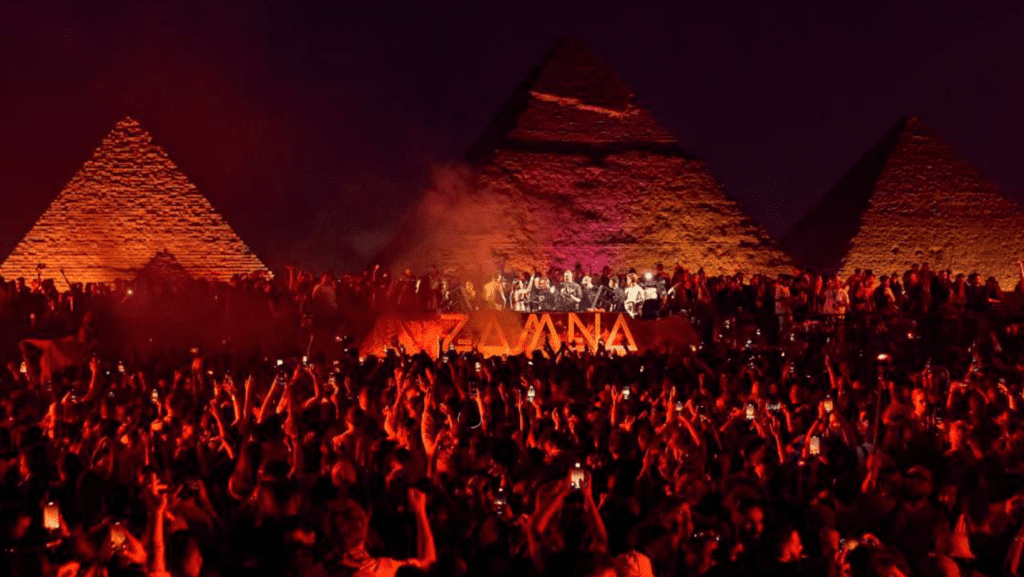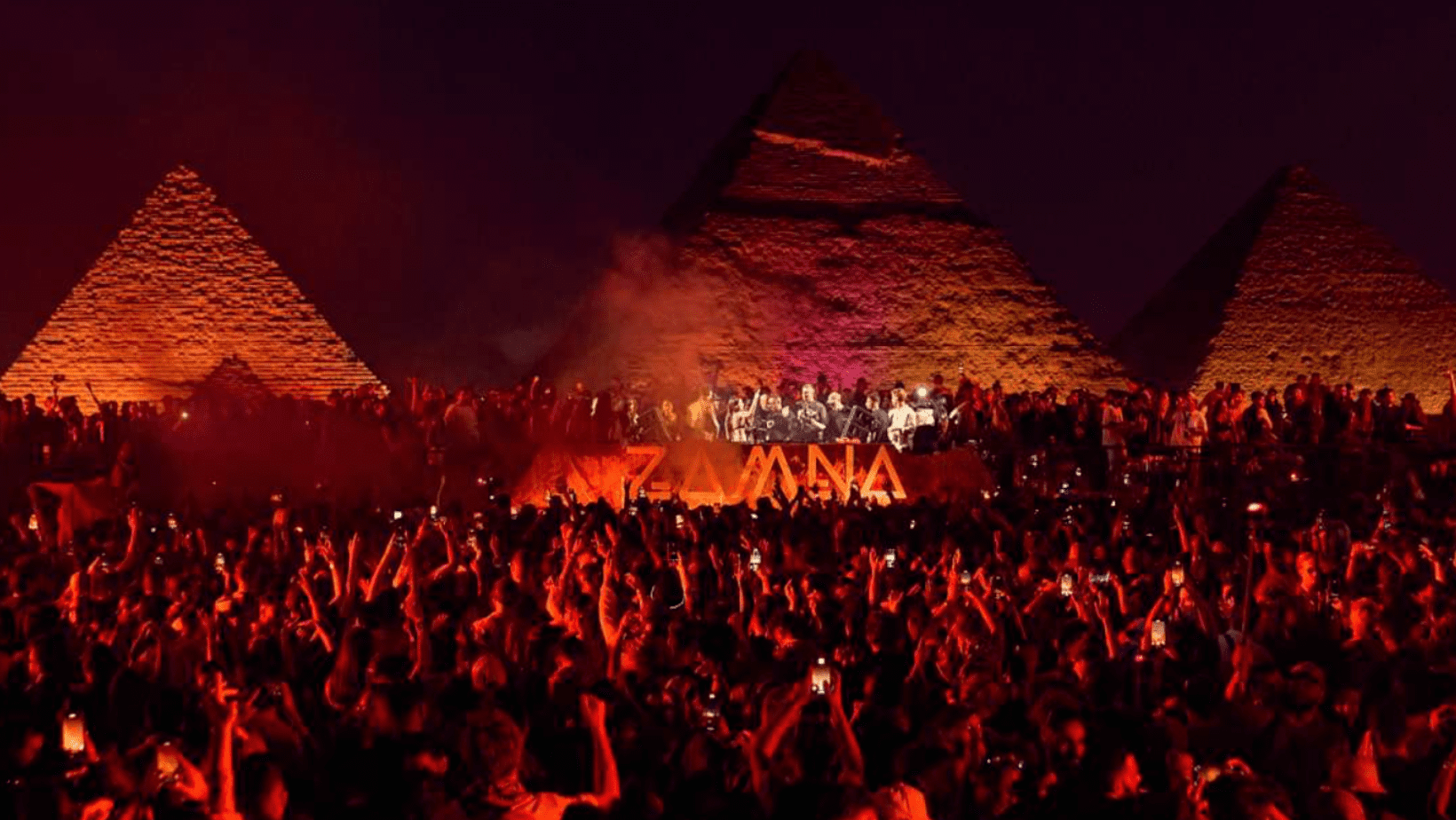

The Great Pyramids of Giza, one of the world’s most iconic ancient wonders, are at the center of a heated controversy. A prominent Egyptian rights organization has filed a lawsuit demanding an end to raves and large-scale music festivals at the historic site — and the move is sending shockwaves through both the cultural heritage and electronic music communities.
Protecting Ancient Heritage or Blocking Modern Culture?
The Egyptian Center for Economic and Social Rights (ECESR) has officially taken legal action against Egypt’s tourism minister, the antiquities council chief, and the Giza governor. Representing Egyptologist Monica Hanna and two other plaintiffs, the organization argues that massive sound systems and dazzling laser shows could physically endanger the Pyramids.
According to the lawsuit, the intense vibrations from high-powered speakers have the potential to destabilize the ancient stones, while laser lighting systems used during modern performances allegedly violate international heritage illumination standards.
Music Meets Monuments
In recent years, the Pyramids have become a sought-after stage for global artists and DJs. Techno sensation Anyma performed a stunning audiovisual show on October 10th, drawing thousands of fans from around the world. Even more ambitiously, the founder of EXIT Festival plans to host a multi-day, multi-stage electronic music festival at the site in October 2026 — a first in history.
However, critics argue that such events blur the line between celebration and exploitation. While tourism officials view these gatherings as a creative way to boost Egypt’s global image and revenue, heritage experts insist that some places are simply too sacred — and too fragile — for modern spectacle.
A Battle of Priorities
The ECESR’s legal claim rests on Egypt’s Constitution, the 1983 Antiquities Protection Law, and obligations under the UNESCO World Heritage Convention. The group argues that the state must enforce existing laws that forbid any physical or visual alteration of antiquities, including risks posed by concert infrastructure.
Their statement accuses the Tourism Ministry of failing to safeguard national heritage, warning that neglect could result in irreversible damage. “The Pyramids and their surroundings face a grave danger,” the organization declared, urging authorities to suspend all entertainment activities at the site until strict preservation measures are applied.
Tourism vs. Tradition
Egypt has increasingly opened its ancient sites to private events — from fashion shows to concerts — as part of a broader campaign to rejuvenate tourism. The strategy has generated international attention, but it also raises tough questions: Where do we draw the line between cultural promotion and cultural erosion?
For now, the debate continues to intensify. Supporters of the lawsuit say it’s a necessary act of protection; detractors claim it stifles Egypt’s creative and economic growth. What’s clear is that the Pyramids of Giza remain as powerful a symbol as ever — not only of Egypt’s glorious past but also of its ongoing struggle to balance preservation with progress.
Conclusion
As the lawsuit unfolds, the world watches closely. The outcome could redefine how ancient landmarks are used in modern times — and whether the beat of progress should echo through the sands of history or stop at the gates of eternity.

